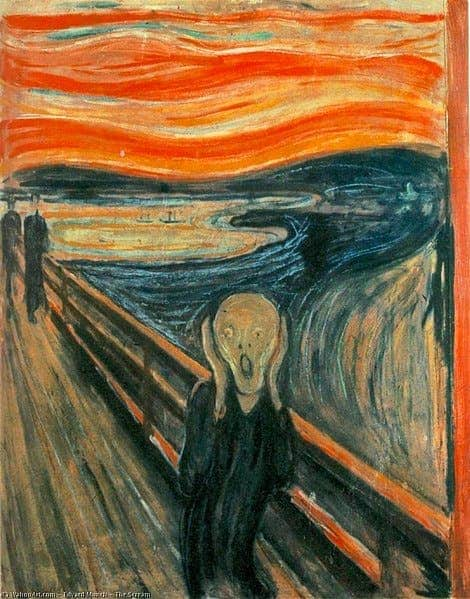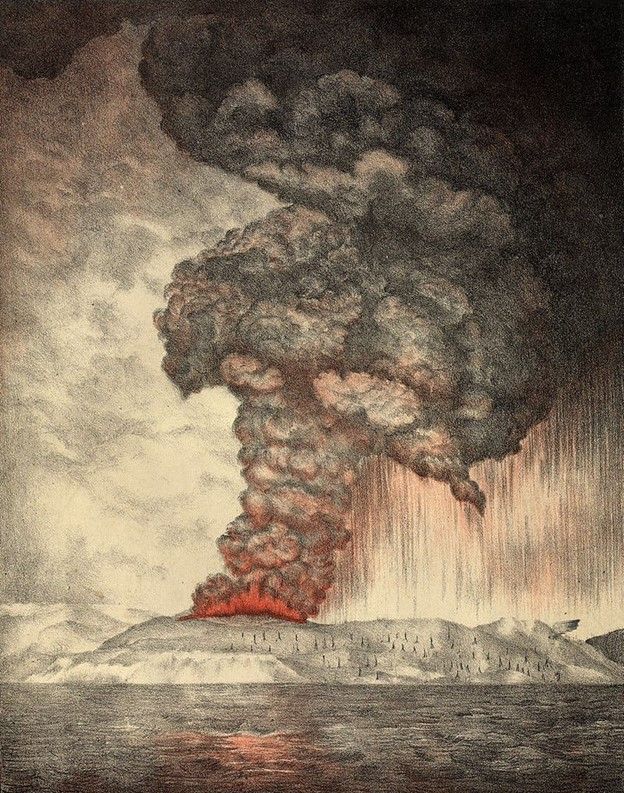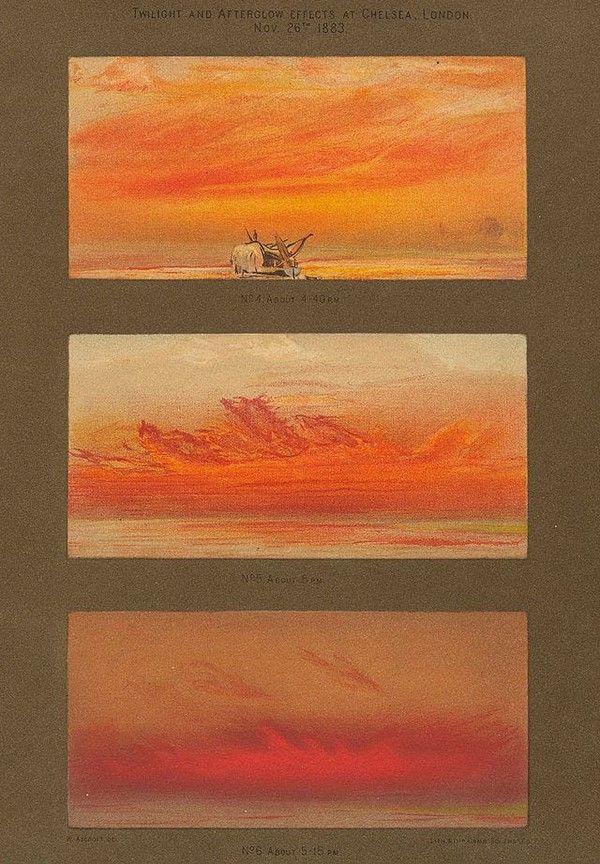The Loudest Noise Ever Heard
Adapted from an article by Mihai Andrei in ZME Science, September 15, 2022

The eruption of the Krakatoa volcano in August of 1863 is believed to be the loudest sound produced on the surface of the planet – in human history, that is. It circled the Earth four times in every direction and shattered the ears of sailors 40 miles away. The volcano erupted with ungodly strength, sending ripples of sound heard thousands of miles away.
The famous Edvard Munch painting called The Scream is believed to be inspired by the Krakatoa eruption, which sent so much ash into the atmosphere that it made sunsets reddish for years. Ironically, this eruption might have also been the loudest scream ever heard.
There are many stories about Krakatoa, all of them from people far away from the volcano — because no one really close to it could have survived. When Krakatoa erupted in 1883, it exploded with such force that it basically destroyed its island and atoll, releasing 20 million tons of sulfur into the atmosphere and shrouding the entire planet in aerosols that reduced global temperatures for years.

As Krakatoa produced spectacular sunsets across the world, artists were inspired to produce thousands of paintings of these sunsets. But Krakatoa’s eruption brought, above all else, destruction.

Over 30,000 people were killed by the volcano and the tsunamis it triggered. The sound ripples were also ungodly.
Some 1,300 miles away, in the Andaman and Nicobar islands, people reported “extraordinarily loud sounds, as of guns firing;” 1,930 miles away in Perth, Western Australia, people reported hearing what they thought to be artillery in the distance. As far as 3,000 miles away, people heard the sound. Think about it this way: it’s as if someone made a sound in New York and people heard it all the way in Ireland, across the ocean.
The captain of a British ship called Norham Castle wrote a haunting report of Krakatoa’s eruption. The ship was 40 miles from Krakatoa, and yet he wrote:
“So violent are the explosions that the ear-drums of over half my crew have been shattered. My last thoughts are with my dear wife. I am convinced that the Day of Judgement has come.”
Coincidentally, measuring instruments 100 miles away from Krakatoa picked up sounds from the explosion: a whopping 172 decibels, incredibly loud considering the distance. Hundreds of kilometers away, the sounds were louder than the loudest concert ever recorded.
The air shockwave from Krakatoa (because you can’t really call it a sound) circled the globe 3-4 times in all directions. Tidal stations as far away as England and the U.S. recorded a rise in ocean waves caused by this air pulse — an effect which had never been seen before.
Even as the sound could not be detected, the air wave made its presence felt. To this day, this event is called “the great air-wave”.
It’s estimated that the Krakatoa eruption reached 310 dB — a testament to the destructive force that nature can unleash.
There have almost certainly been even stronger eruptions in Earth’s history, but it’s impossible to say just how loud they were. The Krakatoa eruption is probably the loudest sound mankind has ever witnessed — and if we’re lucky, we won’t hear a louder one anytime soon.
Editor's note: This item was inspired by my viewing of a YouTube video about the eruption. The video is long, but worthwhile, and has been viewed more than 9 million times on YouTube. ~KRock
